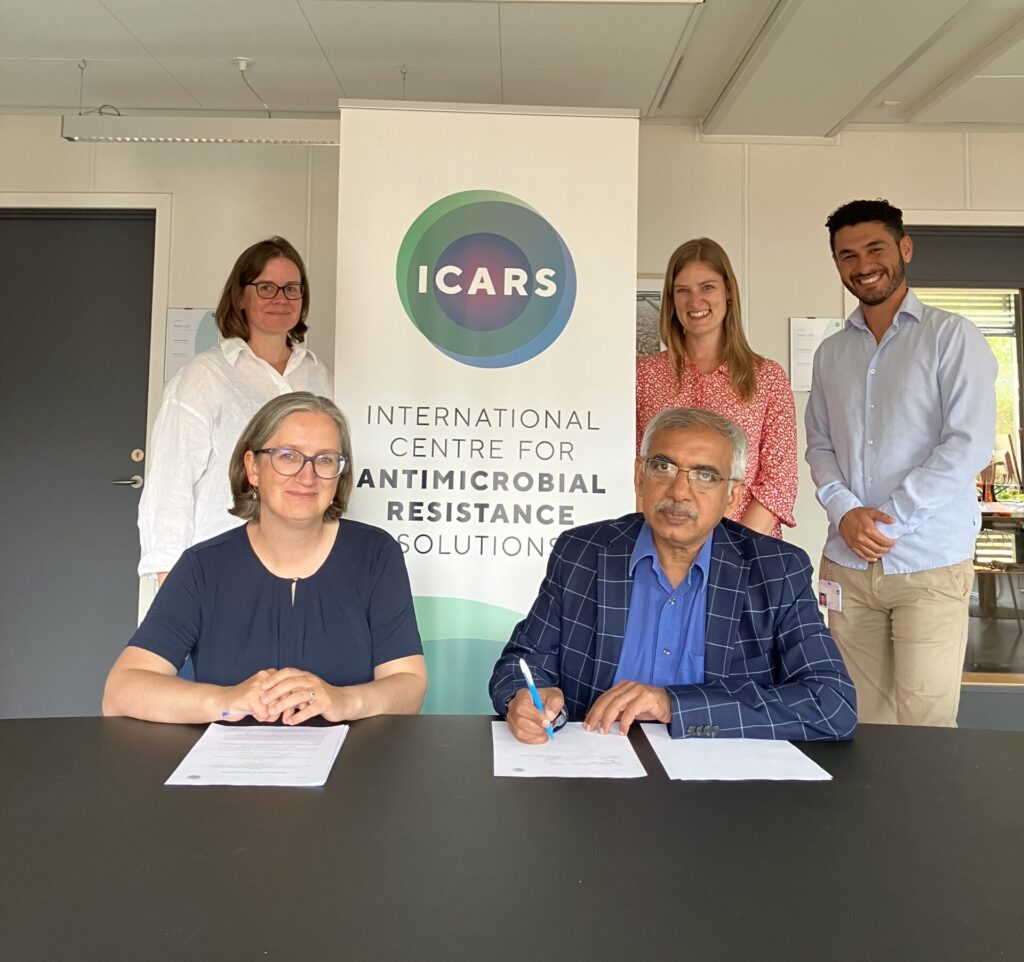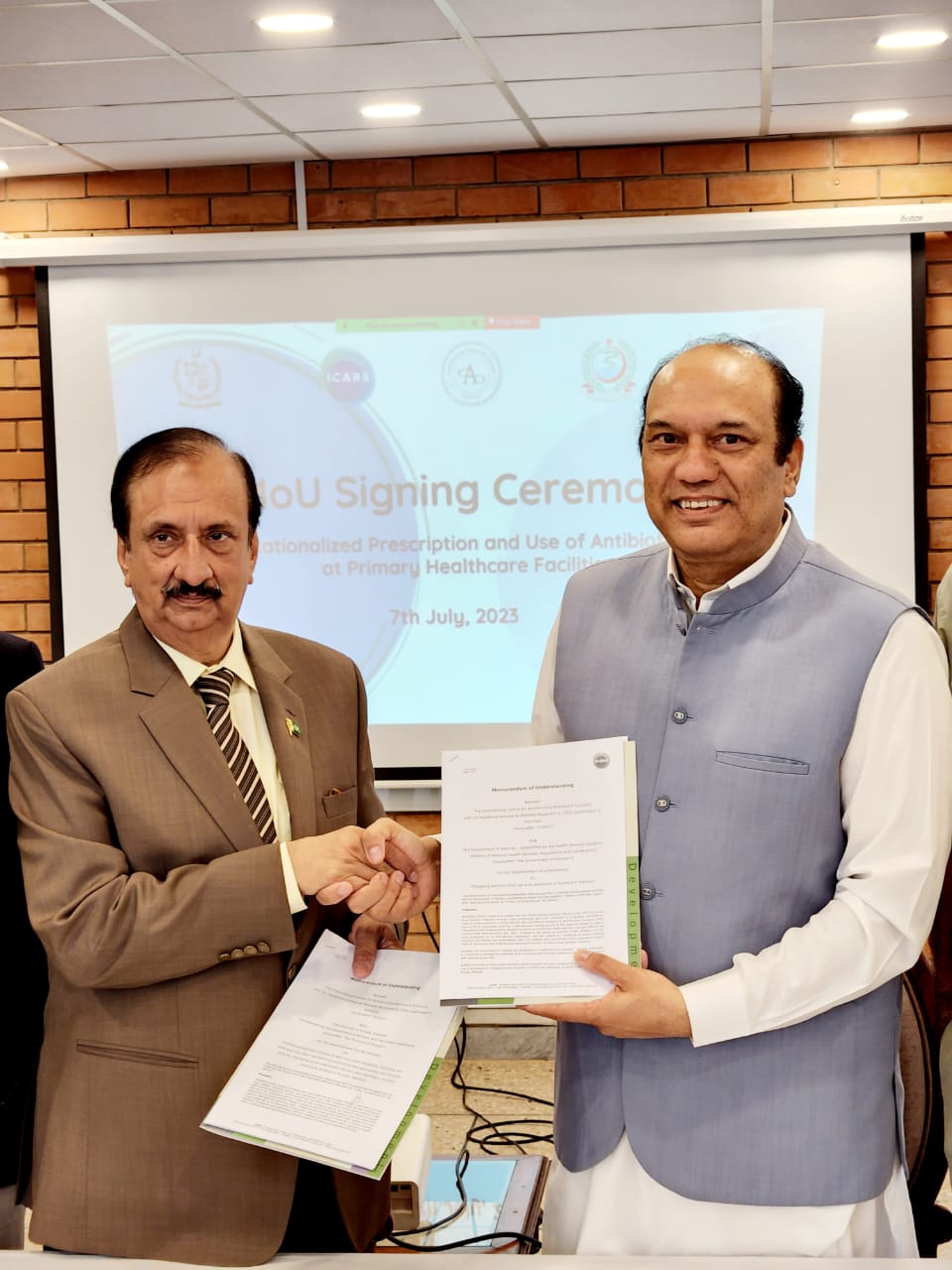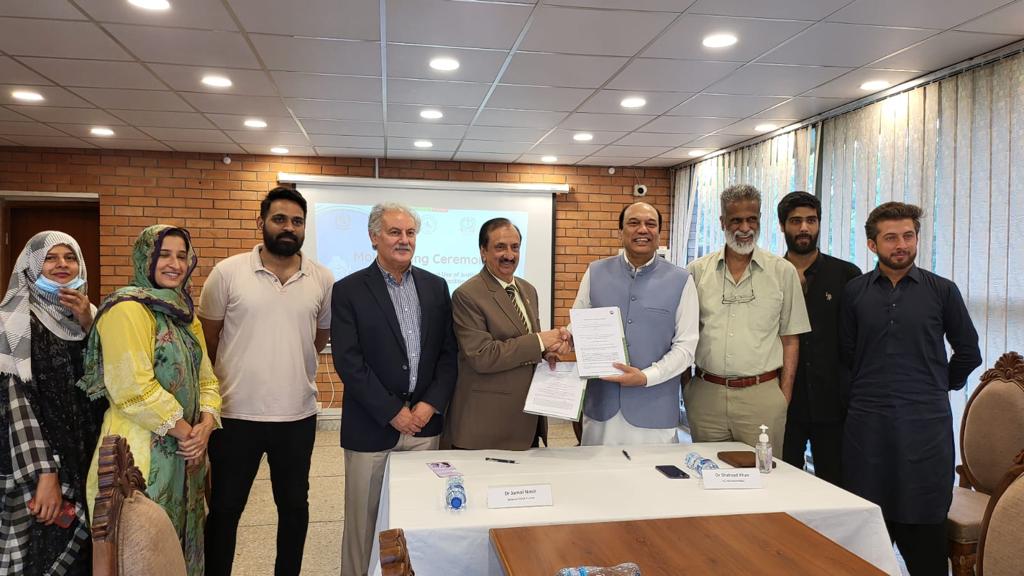On July 7, 2023, ICARS signed two Memorandums of Understanding (MoUs) with Pakistan, working at both federal and provincial levels of governance to better address local systems and needs. To deepen the collaboration, Pakistan also joined ICARS as a mission partner.

Earlier in June, ICARS visited Islamabad and Lahore and met with public officials from Pakistan´s Ministry of National Health services, Regulations and Coordination (MoNHSRC) as well as the Department of Primary and Secondary Healthcare in the province of Punjab. At the top of the agenda was the increasing challenge of antimicrobial resistance (AMR) in the country, particularly for common infections.
Multi-level partnerships to mitigate AMR in Pakistan
ICARS signed two MoUs with Pakistan, engaging at different layers of governance to ensure responsiveness to federal and provincial structures under the country’s devolved health administration.
The two agreements signed with the Pakistani government, through the Health Services Academy in the MoNHSRC, and with the province of Punjab, establish a strategic partnership focused on reducing the use of inappropriate antimicrobials and mitigating antimicrobial resistance, specifically in the human population of Pakistan.
These agreements will pave the way for collaborative development of cost-effective solutions tailored to local needs to effectively mitigate AMR.
ICARS is also very pleased to see Pakistan join the organisation as a mission partner at the federal level.

Close-up on the provincial level: Project description and anticipated results
The project is currently being co-developed by ICARS, The Association for Social Development in Pakistan and Health Services Academy, with the support of the provincial health department and local health care centres. It aims to create an effective and replicable intervention model for the appropriate prescription and use of antibiotics in rural health centres in Punjab, Pakistan.

“We feel excited and encouraged to see the stakeholders’ commitment about promoting appropriate prescription and responsible consumption of antibiotics at primary level public health care facilities. The continued support of ICARS team has enabled the in-country team to achieve an optimal balance between global considerations and local realities,”
Dr. Muhammad Amir Khan, Chief Coordinating Professional, Association for Social Development.
Working closely with the local personnel, project partners will implement a pilot intervention to improve antibiotic use for respiratory tract infections and diarrhoeal conditions in primary care settings.
Once implemented, these activities are expected to improve the rational prescription and dispensing of antibiotics and serve as a blueprint for scaling up the approach at a provincial level.
ICARS’ Commitment to Partnership and Global Impact
Through these new partnerships with Pakistan, ICARS remains committed to its mission of partnering with ministries and research institutions in Low- and Middle-Income Countries to co-develop and test cost-effective, context-specific AMR solutions with potential for scale-up, building on national action plans and informed by intervention and implementation research.
Learn more about ICARS co-developed projects.
